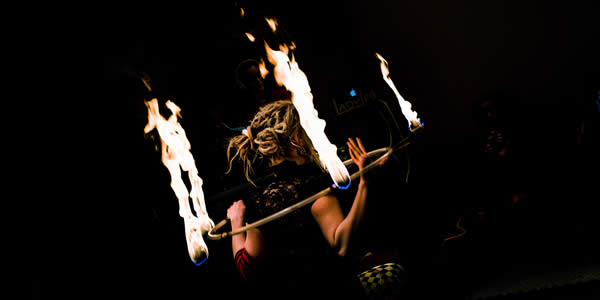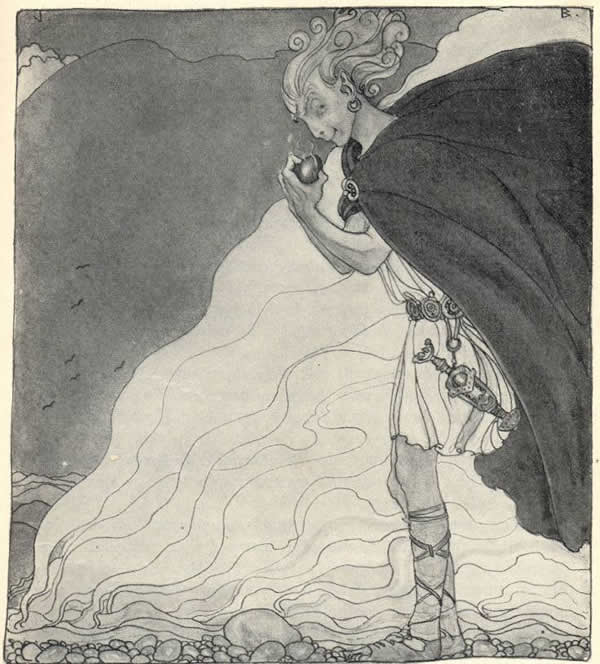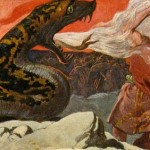(Author’s Note: Many thanks to Yvonne Aburrow for the lovely article bringing the word heretic back into the light. No matter what path I’ve walked it’s a title, I’ve felt comfortable with.)
We began as a movement of heretics.
Whether you count its origins in the pastoral altars of Romantic poets, the channeled voice of the Night Sky herself speaking to a mad sorcerer in Egypt, or the stolen revelations of a secret witch-cult in England–or maybe you don’t believe any of those stories–modern Paganism began in protest. It began with the voices of the heretics.
What does the heretic say? “There is another way.”
It’s true; there is always another way. Always another path one might walk. The heretic, the witch, the mystic sets out to prove this. They breathe fire, igniting the spirits of those they touch, burning down structures that prevent freedom, and lighting the way for those who choose to follow.
But what happens to heretics as they age? What happens to any revolutionary? If they hadn’t wanted the new paths they’d forged they would never have done the work in the first place. No one truly likes being alone all the time, the heretics want company, and they do not lack for it; people follow in their wake dancing after the flame.

But, the fresh-burnt path becomes well-trodden. Signs are posted near pitfalls and bridges built to ford rivers. Guardrails are built and paving stones set. Pretty soon the burnt trail in the woods is a well-marked yellow-brick road. When the children of the trailblazers contemporaries walk it, that will be how they know it.
And we’re facing this in Paganism right now.
Our movement started with trailblazers saying, “there is another way” in response to the established religious and social environment they lived in. It was often accompanied by a desire to seek truths that the heretics in question felt had been abandoned as society had changed.
Now that we’ve been around for a bit we’re establishing patterns. New scholarship and attention paid to the Lore has allowed us to reconstruct or revive old practices, lighting our fires from embers long-dimmed. We have created some traditions and seek to establish others.
What do we lose by doing this? The heretics, who still come dancing to Paganism because it is another way, show up and see patterns that remind them of what was left behind. Rules. Traditions. Churches (the worst thing ever to one who has worked to escape them). Not every Pagan seeker is a heretic, mind you. Many of us come to these traditions because we are called by Gods or spirits or other forces the bring our lives into alignment with them. The tradition appeals to them.
But as I said, the mystics, the heretics, the wild ones still come to these paths, look around aghast, and decide to burn their own roads. Thus Devotional Polytheists (the capital letter kind at least). Thus syncretic traditions. Thus chaos Pagans. Thus atheopagans. Thus pop culture Pagans. All of these paths are made by those who showed up, didn’t like what they saw but liked what they felt, and started some more fires. Those who had been working at building the structures stand aghast and dismayed at what is being wrought.

I understand both sides of it. I’m the sort who only ever makes a recipe the way it is in the book once; I have to toy with it and see what I can find. I’ve had to come to terms with this; I’ve always wanted to be a traditionalist, and I’ve always failed miserably. There are those of us who simply do not have it in our makeup. We don’t want to burn things down but we grow mad when we feel confined or bound, and the fires start again whether we want them or not.
The mystics will see the Powers and talk to them, and relay what they’ve experienced, and as always, those who are working to build traditions will blanch, because churches hate nothing more than a mystic coming in causing trouble. As our traditions and organizations calcify, the heretics will need to either look elsewhere, or for those truly called by the Gods, will need to be aware that it’s unlikely that they will ever sit at the fireside and share the mead in full company of the assembly as much as they will stay in the shadows and take what may be offered as their voices ring out, calling out perceived hypocrisy and attempting to speak truth to power.
I’ve seen the pattern beginning to form though, surprisingly regardless of political or social style of the tradition. Lines are being drawn because we need lines. Lines are being crossed because they confine. From this interplay patterns will break and fall, or become further strengthened and last.
There is nothing wrong with being a traditionalist. There is nothing wrong with being a heretic. There is nothing wrong with the fact that that tension will never be fully erased, that that strife will play out eternally. The walls are built and in being built outsiders are made. This is a tale at least as old as humankind, and perhaps as old as nature.
A word to the wise, though: don’t forget that the structures you dwell in only exist because of the mad ones, the wild ones, the trailblazers, the fire spitters. Your fields grow from the ash of the fires they’ve spread, and you light your temples with the embers plucked from the devastation that they wreak. None of us like the tricksters and strife-stirrers and heretics (at least when they aren’t ours), but without them we’d never have left the traditions we were raised in; we wouldn’t even have new paths to walk down. We owe our current traditions and paths to them and remember that some day the ones that gall you most may have traditions of their own. There is no stopping or changing that; it’s a natural cycle, and as far as I can tell natural cycles are things that most Pagans pay attention to or even revere.
But please, even if you can’t help setting things ablaze with your touch, try and stick to a controlled burn. As someone who has set more than a few metaphorical wildfires in her time, I know the savage joy of unleashing them and the soul-rending pain of their consequences. Use the fire carefully; whether we admit it or not and however we define them, we all do want good company and nice things, and indiscriminate combustion will drive the one away and wreck the other.


Patheos Pagan on Facebook.

the Agora on Facebook
The Lady’s Quill is published on the second and fourth Thursday of every month. You can subscribe by RSS and e-mail.
Please use the links to the right to keep on top of activities here on the Agora as well as across the entire Patheos Pagan channel.












